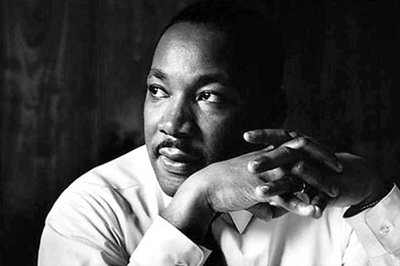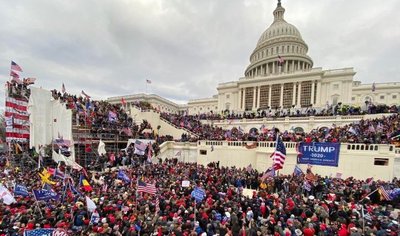Background, Activities and Critical Analysis
By Doug DuBrin, an English and history teacher as well as an editor and writer
Estimated Time:
2-3 class periods, plus extended activities
Lesson Overview:
Through this lesson, the student will come to understand the significance of the 1906 San Francisco earthquake through the study of primary documents. The student will also apply his/her research skills to the study of primary documents from various other key historical events.
Materials
1. Background articles
http://www.pbs.org/wgbh/amex/ansel/peopleevents/e_earthquake.html
http://quake.wr.usgs.gov/info/1906/
http://www.pbs.org/wnet/savageearth/earthquakes/
2. Links to first-hand accounts
http://www.sfmuseum.org/1906/ew.html
3. Procedures (provided below)
4. Extension activity links and explanations (provided below)
Content overview:
The 100th anniversary of the 1906 San Francisco earthquake and fire is April 18. The quake and the resulting fires were one of the most devastating natural disasters in United States history. Recent estimates place the death toll from the quake at close to 3,000, far more than the original tally of around 300. The physical devastation to the city itself was immeasurable, in great part due to the lack of structural reinforcements that we take for granted today. Yet, like most events of sweeping adversity (such as Hurricane Katrina or the terrorist attacks of Sept. 11, 2001), the people of San Francisco galvanized support for each other and from the outside and found ways to rebuild one of the country's most beloved cities.
Procedure:
1. In order to gain a thorough understanding of the scope and impact of the disaster, have the students prior to the lesson carefully read the background articles provided above.
2. Copy and randomly distribute to each member of the class a different firsthand account (there are 32 provided in the link above).
3. Divide the class into groups of 3-4 students each.
4. Have each student read an account out loud to the other group members, while attempting to capture the mood and tone of the piece as it was written. For example, if the narrative is describing the horrible destruction of the quake and resulting fire, insist that the tone of the reading reflects it (i.e., the student should not be laughing while reading, but rather projecting a somber mood).
5. Once each student has completed reading the narratives aloud, have the groups critically examine the texts by answering the following:
-
What commonalties did you find in the content of the narratives? In other words, what are the shared memories of the experience?
-
Why might certain memories stand out more than others? What might cause a person to vividly remember the color of a lamp shattered by the quake when he/she would not ordinarily recall such a detail?
-
How might you identify the mood of the narratives? Are they all necessarily dark? Could there be a sense of relief due to the simple fact of having survived? When recounting separate parts of the disaster, does the mood change within the individual narrative itself? If so, why might that be?
6. Reconvene as a class to discuss the overall role and value of firsthand historical accounts. To guide the discussion, you may wish to ask the following:
-
In what ways do personal narratives enrich our study of history? What do they provide that objective, analytical accounts of historical events do not?
-
In what ways are personal narratives limiting in their view of history? What do they lack as far as enriching our understanding of historical events?
-
How trustworthy are the firsthand accounts of historical events? What individual biases or external influences could get in the way of "truthful" reporting?
-
How does the age, gender or social status of the eyewitness influence the way in which he/she views the disaster?
-
Does the media today rely on firsthand accounts of events to report the news? Are reporters themselves discouraged from expressing their own opinions? In what ways does the news coverage of major events differ between television reporting and print media?
Extension Activity I: Analyzing other primary documents
For a follow-up activity, the procedures above can be applied to the study of firsthand accounts of other seminal events (besides the 1906 San Francisco earthquake) in American history. Included below are useful links to various other primary-document resources:
http://www.archives.gov/research/arc/
http://memory.loc.gov/ammem/index.html
http://historymatters.gmu.edu/browse/manypasts/
http://valley.vcdh.virginia.edu/
http://docsouth.unc.edu/fpn/
Extension Activity II: Creating an eyewitness account of history
Have the students imagine they are witness to, or taking part in, a major historical event from the past -- a natural disaster, a revolution, a major election, a significant sporting event, a military operation, etc. Then have them compose a firsthand account of the event, one that attempts to truthfully capture the detail that is often lost in "objective" historical writings. The following question should be helpful:
-
What significant historical event am I witnessing?
-
Where am I specifically and what exactly am I doing at this point?
-
Am I an outside observer to the event or am I directly involved in it?
-
With whom am I interacting and in what situations?
-
What are my specific feelings about the event I am witnessing?
-
What thoughts do I have about the importance of the event as I witness it? Is there anything I am noticing that would foretell its significance?
-
What details stand out? What normally inconsequential occurrences have now become significant? In other words, what are my senses telling me to remember?
-
What was the experience like as a whole? What conclusions might I draw based on my observations of the events as they unfolded? What would I want future readers of my account to know?
Correlation to National Standards
For detailed explanations, please consult
http://www.socialstudies.org/standards/strands/
Thematic Standards
Standard 2: Time, Continuity and Change
Standard 3: People, Places and Environments
Standard 4: Individual Development and Identity
Standard 5: Individuals, Groups and Institutions
Standard 10: Civic Ideals and Practices
Disciplinary Standards
Standard 1: History
Standard 3: Civics and Government
Author
Doug DuBrin teaches and writes outside of Chicago.





